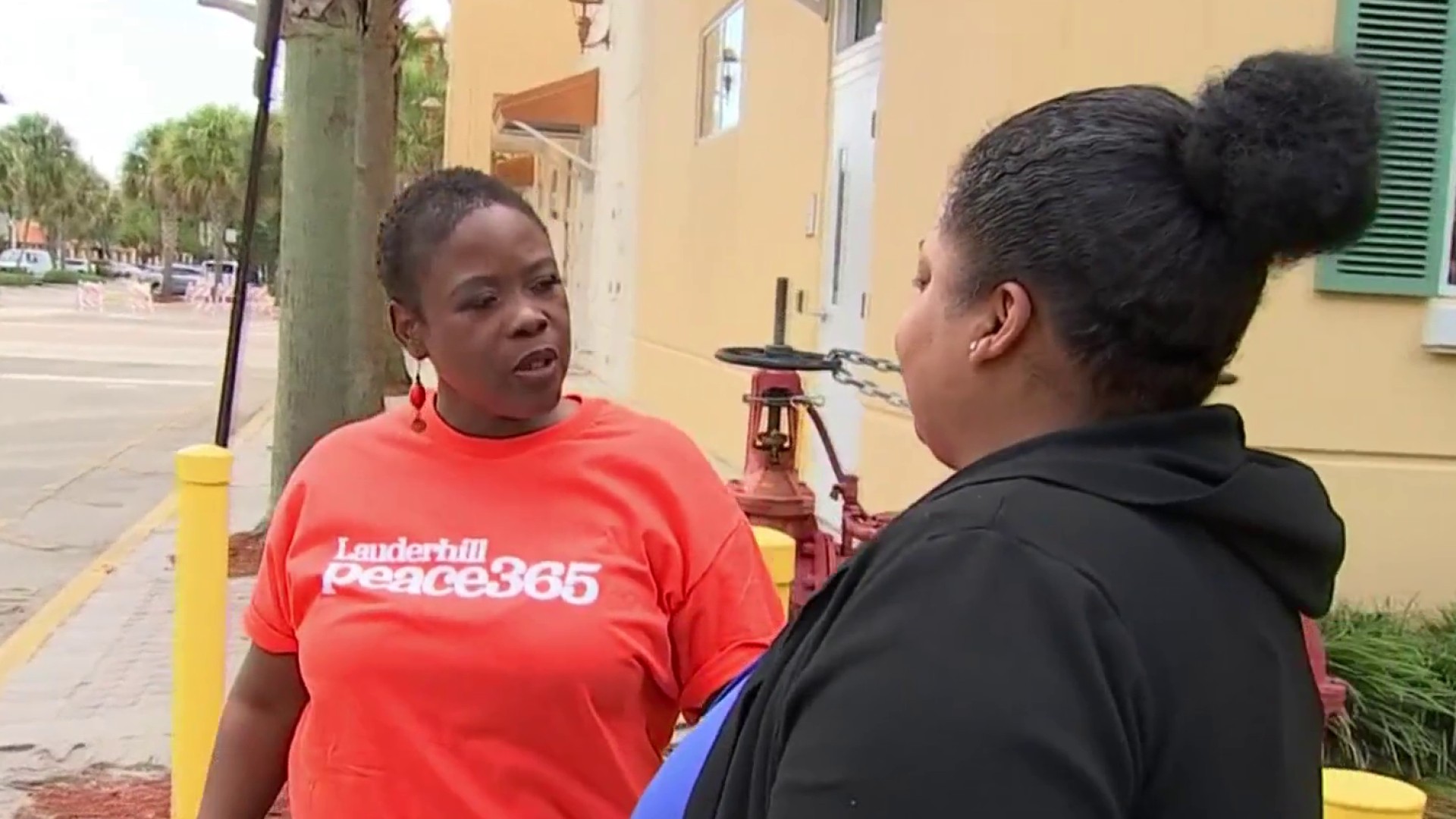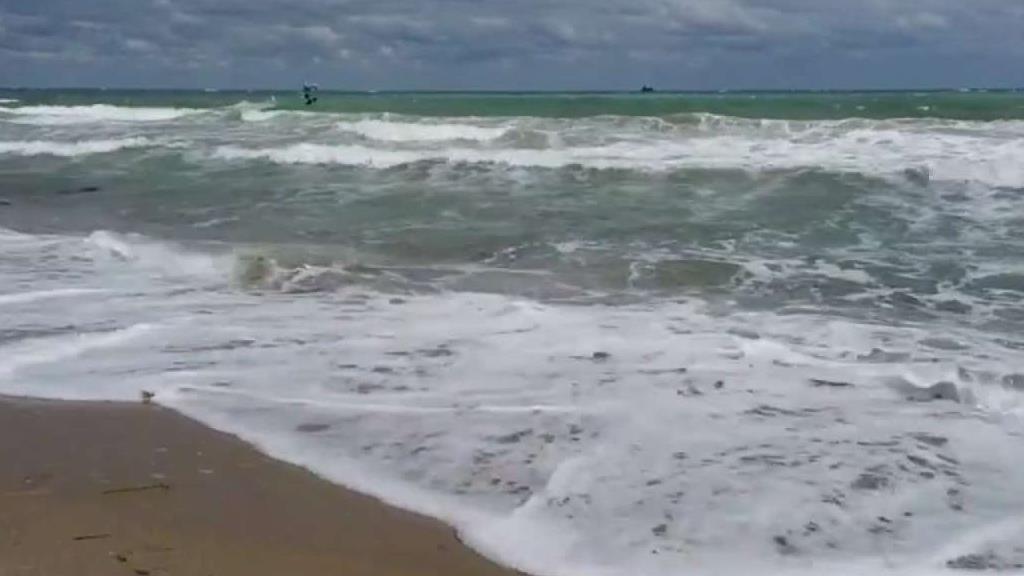Two-time convicted sex offender Michael Leverett could've been back roaming his Davie street in 2009, after his second prison sentence since 1979 for sex crimes involving underage girls.
Instead, he wound up at the Florida Civil Commitment Center, home to more than 600 sex offenders held after their prison sentences expire because the state suspects or a court has ruled they are likely to rape again.
For six years, Leverett fought to show he was not a threat on the outside and by August 2015, he'd persuaded two mental health professionals he should be released.
In a letter included in his court file, Leverett described one of his psychologists as "one of the first that really listened to me in my life" and vowed to her "I will not let you down."
Within a month of his release, Davie Police allege, Leverett did more than that: the 55-year-old man began an eight-week binge of at least 135 sexual encounters with two 16-year-old girls.
Of the 628 offenders housed at FCCC, in DeSoto County on the last day of 2015, 536 were committed by a judge or jury who found they were sexually violent predators, or SVPs, who would likely reoffend if set free. The other 92 were, like Leverett, detained pre-trial after a judge found probable cause they were SVPs.
Once professionals agreed Leverett was no longer likely to reoffend, Broward County Assistant State Attorney Tara Sullivan negotiated a settlement agreement allowing his release on Oct. 8, as long as for three years he continued treatment and did not violate the law.
Local
Since Leverett was not on probation, no one from the state had to approve of his living arrangements, which included sharing his family home with, among others, one of the 16-year-old girls with whom he now stands accused of having sex.
"They should have kept him in there," that girl's mother said of the commitment center. "I mean, a psychiatrist should know whether the man is right in the head or not and he's not."
Police now allege in two separate cases Leverett had oral, vaginal or anal intercourse with the two 16-year-old girls at least 135 times between Nov. 13 and Jan. 2.
He was arrested on Jan. 4 on a warrant alleging sexual battery after one girl disclosed the encounters to her mother and police.
After first denying a sexual relationship with Leverett, the other girl later gave a sworn statement describing near-daily sex with Leverett, police claim. Asked about her initial denials, the girl said she had "developed emotional feeling for defendant Leverett and wanted to protect him," a sex crimes detective wrote in Leverett's arrest affidavit.
Leverett's public defender did not return a call seeking comment on the new charges, which now total nine counts of unlawful sexual activity with minors, second-degree felonies punishable by up to 15 years in prison.
On the civil side, the state is already moving to have him sent back to the FCCC and declared a sexually violent predator. But even when offenders are ruled a SVP, the state has no program in place to monitor their transition back into the community once they are released.
In 2008, a legislative office told the Department of Children and Families it should create such a program, but eight years later DCF has failed to do so.
A spokeswoman told NBC 6 the department is still working on it.
Meanwhile, dozens of offenders and predators are being released back into the community, often with little oversight.
Glenn Davidow was committed to FCCC as a sexually violent predator after convictions in 1992 for lewd assault on a child and in 2008 for using the internet to solicit sex with a child, who turned out to be an undercover agent.
Last month, though, Davidow was released on a five-year settlement agreement, after doctors opined he had shown significant progress with treatment at the FCCC.
While Davidow, 43, will get enhanced scrutiny because he’s classified as a sexual predator, and not just a sexual offender, he will not benefit from a transitional program because DCF has failed to establish one.
Even those not declared SVPs have had their share of problems.
Among those convicted of crimes in Broward, Jack Love was arrested and convicted of raping a child two years after he was released with a settlement agreement; Jermaine Moye was returned to prison after three years free; Eric Smith, after one month; and now Leverett.
As he walked free for the first time in eight years, Davidow told NBC 6 last month "it feels wonderful" and vowed not to reoffend.
As for whether he felt he needed support from the state, he said, "Well, I have support with my parents and I have other support elsewhere. So everything will be great."
Sullivan, the prosecutor who handles sex predator cases, said the lack of a DCF transition program is "the very difficult part of this program. Unlike being on a criminal probation, we don't have a paid supervisory office that is supervising them and monitoring them, and it's extremely important. It's the missing link that really offers the community security."
Asked why it hadn't created the program, DCF issued a statement: "This is a complex issue that requires a coordinated solution as DCF does not have unilateral authority on any post-release supervision programs. To that end, DCF is working with our partners at the Department of Corrections and within the judicial branch to examine all constitutional implications of this potential proposal."
A DCF official has drafted legislation that would create a two-year transitional release program and authorize the state to approve offenders' residences and prohibit contact with potential victims.
But DCF has failed to get a legislator to sponsor it.
Eight years of inaction by DCF brings no comfort to the mother whose daughter crossed paths with Leverett.
"Bad move, really bad move. Please don’t do it again," she said. "Next time, come with the person and see where they're going to be living first. Make sure they have the correct place where to live."



